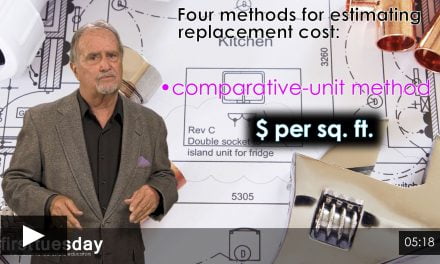Do you consider security deposits worth the effort to collect and account for in residential rental units?
- Yes (96%, 22 Votes)
- No (4%, 1 Votes)
Total Voters: 23
Residential landlords will soon be further limited in the amount of security deposit they may charge a tenant. Presently, residential landlords may not charge an amount greater than two months’ rent for unfurnished property, or more than three months’ rent for furnished property.
Beginning July 1, 2024, residential landlords are prohibited from demanding or receiving a security deposit greater than the amount of one month’s rent — regardless of whether the unit is furnished or unfurnished. [Calif. Civil Code §1950.5(c)]
However, the landlord may collect a security deposit equal to two months’ rent when the landlord:
- is a natural person or a limited liability company (LLC) consisting solely of natural persons; and
- owns no more than two residential rental properties consisting of no more than four rental units total. [CC §1950.5(c)(4)]
The exception: when the tenant is a servicemember, landlords (including mom-and-pop landlords) may not charge the tenant for a security deposit amounting to more than one month’s rent for an unfurnished unit, or two months’ rent for a furnished unit. [CC §1950.5(c)(2)]
Further, the landlord may not refuse to rent a unit to a servicemember due to this restriction on security deposits. [CC §1950.5(c)(2)]
Together with these security deposits, landlords are limited to collecting prepaid rent of no more than the first month’s rent, unless a lease agreement for a term of six months or more exists, which allows the landlord to collect no less than six months’ prepaid rent. [CC §1950.5(c)(2)]
However, upfront rent is just that — rent. It may not be used for costs covered by the security deposit, which include:
- reimbursing the landlord for expenses incurred due to the tenant’s conduct;
- reimbursing the landlord for unpaid rent;
- maintaining the premises during occupancy; and
- returning the premises in the same level of cleanliness as existed at the time possession was initially taken, less ordinary wear and tear.
Related article:
Letter to the editor: When can a residential landlord keep the tenant’s security deposit?
Reasonable deductions
Landlords often try to “mask” refundable security deposit funds by giving them names like “nonrefundable deposit,” “cleaning charge” or “last month’s rent.” However, any advance of funds in excess of the first month’s rent, screening fees and waterbed administrative fees — no matter how characterized by the residential landlord — are classified as security deposits and are subject to these same limits. [CC §§1940.5; 1950.5(b), (c); 1950.6]
Reasonable deductions from a residential tenant’s security deposit include:
- any unpaid rent, including late charges and bounced check charges;
- recoverable costs incurred by the landlord for the repair of damages caused by the tenant;
- cleaning costs to return the premises to the level of cleanliness as existed when initially leased to the tenant, less wear and tear; and
- costs to replace or restore furnishings provided by the landlord, when agreed to in the lease. [CC §§1950.5(b); 1950.7(c)]
A residential landlord who, in bad faith, fails to comply with security deposit refund requirements is subject to statutory penalties of up to twice the amount of the security deposit. Additionally, the landlord is liable to the tenant for actual money losses the tenant incurs for the wrongful retention of security deposits. [CC §1950.5(l)]
Related article:














